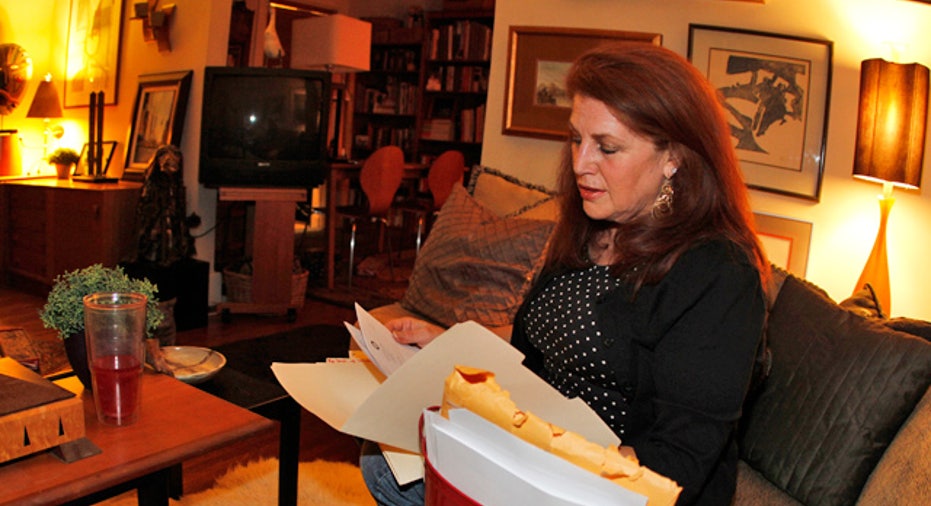Lightning Hit my House!

Susan Elliott was sitting in her Texas living room in June 2004 when she heard a huge boom and felt a jolt that knocked her out of her chair. Her computer shut down and the central air in her house ground to a halt. Her home had just been struck by lightning. "It sounded like a bomb going off and the house shook a little bit," she remembers.
In addition to the computer and the central air, numerous other electronic devices were destroyed. Unfortunately, this would not be the only lightning strike that she would experience, but more on that later.
Lightning insurance claims
According to the National Oceanic and Atmospheric Administration, lightning killed 29 people in 2010. The average from 1980 to 2010 was 57 deaths per year.
The Insurance Information Institute reports that there were 185,789 lightning claims in 2009. These claims totaled $798 million with the average claim over $4,000. The majority of damage caused by lightning strikes is due to the huge surge of electricity that runs through a home.
Fire in the walls
A bolt of lightning can reach temperatures of up to 50,000 degrees, which puts your house at risk for a fire. According to Mike Mullane, a captain with the South Metro Fire Rescue Authority in Denver, lightning looks for the quickest way to reach the ground, which often is through your home's wiring or plumbing. "The intense heat and surge through the wiring can result in a fire. In some cases, a fire will not be immediately apparent; it can slowly burn inside your walls."
Recommended actions
If your home has been hit by lightning, Mullane recommends taking the following actions:
*Make sure everyone is accounted for and immediately evacuate the house.
*Use your cell phone to call 911. The fire department is dispatched in all cases of lightning strikes.
*The fire department will assess the damage and use thermal imaging cameras to make sure there are no fires within the walls.
*When the all clear is given, you can return to your house. Your insurance company will need to be notified and an electrician should come out to access the damage to your wiring.
Home insurance coverage
In May of 2008, Susan Elliott experienced another lightning strike at her home. "This one was worse; all of the power went out and there was a lot of damage," says Elliott, who had moved from Texas to New York. Luckily she was insured.
A standard home insurance policy covers damage caused by lightning, including fires and fried electronics.
The destruction can be extensive yet random. While your computer may be zapped, your TV may be spared. If you have a lightning strike at home, you should check any electronics that were plugged in at the time for damage.
It can take weeks to discover all of the damage. In the case of Elliott's second strike, she lost two out three TVs but only one of three computers. The doorbell was blown and she says to this day we have outlets that don't work and the garage door opener doesn't function correctly."
Installing a lightning protection system
A recent report by the Insurance Information Institute states that professionally installed lightning protection systems are the best way to reduce the likelihood of a lightning-caused fire. These systems work by providing a network of low resistance paths that intercept and direct the lightning to the ground. It is best to have these systems installed by a professional. Improper installation can cause serious damage and actually increase your risk of lightning strikes.
Most home insurance companies will offer discounts after you have one of these systems installed.
Tips for filing a lightning strike claim
If you have the bad luck of being involved in a lightning strike, Dick Luedke, a spokesperson for State Farm, offers the following tips to make sure filing a claim goes smoothly:
*Keep detailed records of all big-ticket purchases such as TVs, laptops and other expensive electronics. The insurance company will want to see proof of ownership.
*Report a lightning strike to your agent as soon as possible.
*Keep accurate records of how much you spend repairing or replacing items.
*Review your policy for specific coverage information.
*Check with your claim representative before you discard any items you plan to claim as damaged.
As Elliott learned in two instances, lightning strikes can be damaging and disruptive. However, a home insurance policy and an accurate record of damaged items can help you put your house back in order.
The original article can be found at Insure.com:Lightning hit my house!



















